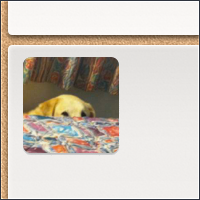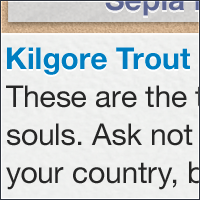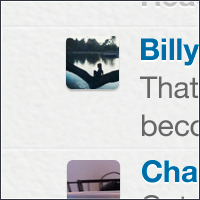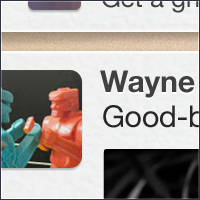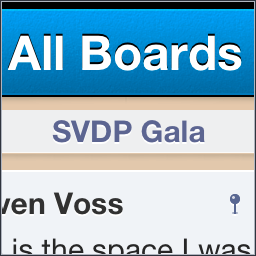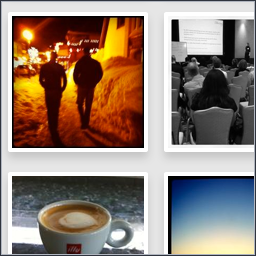May 2012
Zucking Up
Andrew Keen in an opinion piece for CNN:
Sherry Turkle, Professor of the Social Studies of Science and Technology at the Massachusetts Institute of Technology, tells us there’s a “shift” from an analog world in which our identities are generated from within, to a digital world in which our sense of self is intimately tied to our social media presence.
Facebook is Kafka with a thumbs-up button.
How Facebook Could End
At some point, Zuckerberg will push too hard — a new setting you can’t turn off, a “frictionless” feature that shares too much, a product that simply pisses you off too hard — and users will ragequit for good. The company’s controversial IPO and the simultaneous pressure to build up ad revenue will only accelerate this process.
Brave New Culture
Matt Mullenweg reminds us of Neil Postman reminding us of Brave New World, which you should read. (Or re-read.)
Against Social Media Buttons
What we know for sure is that these magic buttons promote their own brands — and that they tend to make you look a little desperate.
(Via Daring Fireball.)
Social media buttons are junk and they’re harmful. Not helpful or useful.
I’m less likely to read — and especially less likely to link to — sites that use those web-trailer-park buttons. Ditch ’em.
Update 10:50 a.m.: Here’s Shawn Blanc on that same article:
But as I watched and measured the use of that button I found that people were organically sharing my articles on Twitter at a ratio of 5-to-1 those who were clicking the “Tweet this” link.
On Facebook and Google
On the books, it doesn’t seem like Android’s panned out for Google. They make most of their mobile search money from iOS and now have the $12.5 billion acquisition of Motorola to amortize. Wouldn’t it have made more sense to simply focused on making the best search engine and other services, thereby making yourself a must-have on all mobile devices?
Screw ’Em
NickB: Screw the Power Users.
We’re the ones who made computers so hard to use. And we’ve done it by catering to power users — by building software for people like us instead of for people who don’t know and don’t care about all the geeky little details.
Ads in Your Face
We all know, I think, that advertising has to grow more frequent and obtrusive to remain effective.
In the early days, websites would just put a banner at the top of the page. Then people started mentally filtering-out the top of a page. So ads moved also to the sides, to popup windows, and inside the block previously reserved for just article text. And then there were full-page ads that last for 30 seconds (or whatever), and ads that actually obscure the article.
And ads multiplied. (The average web page is now about 1MB. Crazy.)
So we get better at not-seeing the ads, and at hitting the back button as soon as we see an ad that won’t let us continue (after all, there are plenty of other things to read; there’s no scarcity on the web).
Adbook
This makes me think about Facebook. It’s an advertising company — its money comes from ads.
Here’s my question: how can any company survive long-term as an advertising company, knowing that the price of ads goes down as their effectiveness goes down? I think they’ll have to show more and more ads and make them more and more obtrusive — and eventually people will get sick of the ads.
Facebook already counts a significant fraction of the human race as members. It could double or maybe triple its number of users — but what then?
I don’t think a Facebook phone is any kind of answer. It will have to be super-cheap to compete. After all, why buy a cow (a Facebook phone) when you can get milk (a Facebook app) for free? A Facebook phone looks like an expensive distraction, a war of choice.
Religion
Maybe the thinking is that the Facebook database will reach some magical tipping point where the data becomes immensely valuable to advertisers, and the price of ads will reverse its trend, will go up instead of continuing to go down.
But I think that’s recklessly optimistic. Faith that the data will be valuable is the opium of the executive class.
Why I’m a jerk
P.S. I quit Facebook when I couldn’t open a link a friend had shared without my also adding some social reader app. That was my last straw, and maybe my tolerance is low. But everybody has a limit somewhere.
The Key Difference Between Douglas Adams and Monty Python
I’m sure this has been noted — but I don’t know who to credit.
Both Douglas Adams and Monty Python have been noted for their sense of the absurdity of life. The difference is that for Adams there is always an answer — and even a question — underneath all the absurdity. It’s hidden and it may be deeply strange, but it’s ultimately knowable.
But for Monty Python it’s absurd all the way down.
If we geeks had theological debates, I think this would be our debate.
Towels for Animals
I didn’t know that animal shelters used towels as bedding. It’s Towel Day — Happy Towel Day! — and some shelters are doing towel drives. See the events list on the Towel Day website.
Wiskus on Design
I enjoyed the video of Dave’s talk from The Next Web Conference.
Old Fart Nick
NickB: Old Farts Know How to Code.
One thing I love about my company of six people: three are over 40, and the youngest is 30. (Nick is the oldest by about 10 months.)
I prefer working with software veterans — they have more and better scars and lessons learned from those scars.
(Metaphor switch alert.) Have you ever drawn with charcoal? You know how you use your fingers to smudge the lines to get things to look good?
New developers are those crisp and clean lines. Veteran developers have been smudged just right.
Guy on Apple
It’s fun to pick on the idiots, and we do tune in for the affirmation that engenders, but that’s not insight. It’s a tag team wedgie patrol.
Guy writes up the three things that should trouble Apple.
Big Pages
Joshua Bixby on GigaOM: The growing epidemic of page bloat:
There’s a huge body of research that shows that when people visit slow sites, they spend less, view fewer pages, click fewer ads, and spend less time on site.
The average page has grown to 1MB.
Michael Wolff on Facebook
The growth of its user base and its ever-expanding page views means an almost infinite inventory to sell. But the expanding supply, together with an equivocal demand, means ever-lowering costs. The math is sickeningly inevitable. Absent an earth-shaking idea, Facebook will look forward to slowing or declining growth in a tapped-out market, and ever-falling ad rates, both on the Web and (especially) in mobile. Facebook isn’t Google; it’s Yahoo or AOL.
Also see Doc Searls: After Facebook Fails:
But totally personalized advertising is icky and oxymoronic. And, after half a decade or more at the business of making maximally-personalized ads, the main result is what Michael calls “the desultory ticky-tacky kind that litters the right side of people’s Facebook profiles.”
new
I’ve been a Cocoa developer for ten years. (Less than some, but more than most.) And whenever I see new in someone’s code, I assume they’re new to Objective-C, that they’ve just gotten here from Java or C++.
But now, because of ARC, I’ve started using new as a replacement for alloc/init, just because it’s more compact.
In other words, I’ll type [NSCache new] instead of [[NSCache alloc] init].
Total surprise to me.
Simpler WordPress
As John Borthwick put beautifully today, “A tablet is an incredible device that you can put in front of babies or 95-year-olds and they know how to use it.” How we democratize publishing on that sort of platform will not and should not work like WordPress’ current dashboard does. It’s not a matter of a responsive stylesheet or incremental UX improvements, it’s re-imagining and radically simplifying what we currently do, thinking outside the box of wp-admin.
AppleScript and FastScripts to the Rescue
I wrote about a thing that bugged me — and Daniel Jalkut wrote an AppleScript that solved the problem for me.
I put the script into FastScripts (Daniel’s product, which I use every day) and gave the script a cmd-H keystroke — and it works. Problem solved!
Nick on Android Fragmentation
Android’s “fragmentation” problem is miniscule. It’s overstated in the tech press because it generates traffic.
Have I linked to Nick enough recently? You should subscribe to his feed.
Hiding the Last App
A long time ago — in the system 7 or 8 days, I’m sure — you could do this sequence in app…
-
Hide Others.
-
Do some things in that app.
-
Hide [app-name].
…and end up in the Finder, with all other apps hidden.
It hasn’t worked this way for ten years or so. But I still hit cmd-H many times a day expecting to end up in the Finder. Instead nothing happens. (The Hide command is disabled in this situation.)
It made sense to me because the Finder feels like it’s behind everything else. It feels like it’s the computer itself.
So now I get frustrated — many times a day — and option-click on the desktop. (I’m not a frequent cmd-tabber, though I realize that would get me out of using the mouse in this situation.)
Let’s Sing!
Let’s Sing! and Let’s Sing! Free are like karaoke Draw Something. The apps are by Lex Friedman and Marco Tabini.
Apple Artifact from a Forgotten World: It Shipped!
Found in my closet. (Click thumbnail for full version.)
Here’s the explanation:
In 1995 I went indie. My company was called World Wide Power & Light. (Another company already had a similar name, so we renamed the company to Ranchero Software later in 1996. In those days all the cool domain names ended with a vowel: Tango, Marimba, etc.)
Our first main product was a search engine CGI for Macs running WebSTAR (originally MacHTTP). It glued together Frontier and Filemaker Pro to index files on the hard drive and make them searchable.
The price was $99 and we sold 9 copies.
The plaque is from Apple and signed by Heidi Roizen (formerly of T/Maker; then VP of Apple Developer Relations). I’ve never seen any other plaques like this, so I don’t know how many they gave out.
But I was brand-new to all this, and I loved it.
(It looks like our product page is still on the Wayback Machine.)
Update 4:05 pm: Yes, our search engine was called Spotlight. This was long before there was a Spotlight feature on Macs.
Mule App
Earlier today I downloaded the Mule Radio Syndicate iPhone app. Good podcasts. Made by Black Pixel. All good.
Bradbury on Shoe Farts
Twitter Tracking You
Dustin Curtis writes about how Twitter is tracking you on the web. (Via Daring Fireball.)
This shit makes me terrifically angry. I recently quit Facebook — deleted my account. I don’t want to quit Twitter too, but it’s on my mind now.
Browsers and Apps
It seems very likely to me that there’s something simple and beautiful lurking inside the browser platform that will hit the greatest 80/20 point in software history. But I’ve been thinking that for a decade or more, now.
Because I’m a Cocoa developer you might (might) assume I’m a partisan in a browser vs. apps war. But I’m not, and I think it’s an imaginary war. (I spent a couple months working on websites around the beginning of this year. And enjoyed it.)
I do think that Tim’s right when he says it’s complicated and there are reasons to use and not-use both.
It also seems as if partisans tend to assume that the other technology is standing still. It’s not.
The Loop on Blogging
Blogging is not a thing, it’s an attitude:
After almost 20 years of writing news stories and blogs about Apple, it’s become very clear to me that large media companies do not get blogging.
iCloud and Core Data
Drew McCormack pops the hood to see how iCloud and Core Data syncing works.
Twitter’s New Weekly Email Digest Thing
I opted out. Here’s how.
New FeedDemon Release
For Windows users: Nick Bradbury just released FeedDemon 4.1.
Evolution of Glassboard’s Timeline
The first five shots are from mockups as they evolved. The last screen shot is the shipping version — a screen shot from the app.
(Click the image for the big version.)
Screen shot of the shipping version:
Glassboard 2 links
Here’s Nick Bradbury on Glassboard 2.0. Here’s the announcement on the glassboard.com blog.
Update: here’s an interview with me by Matthew Panzarino on The Next Web.
Glassboard 2.0
We at Sepia Labs just released Glassboard 2.0 for iPhone and Android. There’s even a new web app — in beta (still suffers from cats). (All three apps are free.)
We’ve been working on this version since last fall — it’s a big upgrade. Much of it is a new design. (I spent most of my time doing graphics, while Nick Harris did most of the iPhone programming. Nick Bradbury did the wireframes and wrote the Android app, and Brian Reischl wrote the web app.)
In case you’re not familiar with Glassboard, here’s the deal: what Pair is to the bedroom, and Path is to the rec room, Glassboard is to the board room. (Hence “board” in the name. “Glass” refers to your phone’s screen.)
In other words, it’s great for teams (whether co-workers or not). It uses the same statuses, comments, and sharing that we’re all used to from social networks — except that Glassboard is private.
We just about don’t use email any more. I love that.
Screen shots
Click for full-size screenshots.
Some things the app doesn’t do
It doesn’t show ads.
It accesses your contacts — but locally only. It doesn’t upload them.
It doesn’t send anything to Twitter or Facebook.
Join my board
I created an inessential board to give you an easy way to try it out. Here’s what to do:
-
Create an account if you don’t have one.
-
Tap on the upper left button to open the sidebar.
-
Tap “Enter Invitation Code.”
-
On that screen, enter the invitation code rovhy. Then you’re in. Say hi or post a picture or whatever. It’s cool.
(Boards don’t have invitation codes by default, by the way. That’s just for a case like this where you want to make it sort-of public.)
Sugarbert
I’ve always liked this Flaubert quote:
Be regular and orderly in your life like a bourgeois, so that you may be violent and original in your work.
I like this Charlie Rose interview with Lou Reed and Laurie Anderson from 2003. Here’s part two.
Among a bunch of other things, they talk about making their art simpler. But I especially love the exchange starting about 4:30 into part two.
“Everybody we know,” says Lou.
“Works,” says Laurie.


